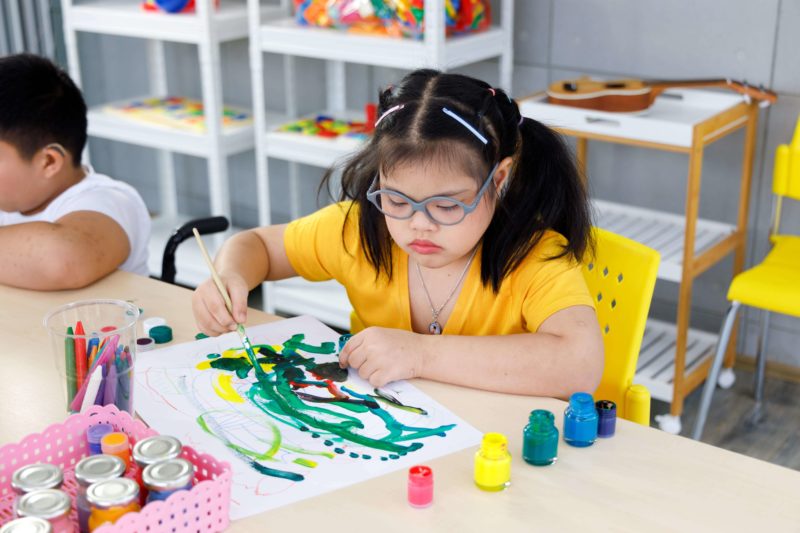Every individual with Down Syndrome is different and unique in their own fulfilling way. Down Syndrome does not discriminate as it’s a genetic condition, not an illness or disease, as some may believe.
For context, Down Syndrome occurs at the stage of conception. Our body is made of many cells; within each cell are tiny structures called chromosomes. The DNA inside each chromosome determines how we develop, form and function, from inside the uterus to the outside world. Typically, we have 23 pairs of chromosomes within each cell or a total of 46; however, people with Down Syndrome have 47 chromosomes, otherwise known as chromosome 21. This additional chromosome changes how the baby’s brain and body develop, resulting in physical and mental differences, with most experiencing some level of intellectual disability in the mildly-to-moderately low range.
Three types of Down Syndrome can be determined by a blood test taken after birth.
- Trisomy 21: the most common type of Down Syndrome, with 95% of people having Trisomy 21. This type of Down Syndrome is characterised as every cell in the body has an additional chromosome 21.
- Translocation Down Syndrome: around 3-4% of individuals with Down Syndrome have this type. This is identified by having a partial amount of chromosome 21 attaching itself to another chromosome. This type of Down Syndrome can be heredity, though it does not significantly impact the condition.
- Mosaic Down Syndrome: the rarest form of Down Syndrome with 1-2% having this type. This form of Down Syndrome occurs after conception, with only some cells having the extra chromosome 21 with the remaining cells having the usual genetic composition.
The thought-provoking question of “what will life be like for my child” is raised often between parents of children with Down Syndrome. It’s important to know that most individuals will live an ordinary life within the community, with some requiring more assistance than others. Many individuals with Down Syndrome speak fluently; however, for others, this can be pretty challenging and will require speech and language therapy intervention. Despite their communication difficulties, people with Down Syndrome understand more than what can be expressed, often meaning their abilities are underestimated.
People with Down Syndrome have now become a valuable part of our community, as they commonly take part in mainstream classes, post-school education, sports, performing arts and workplace culture. Impressively, each year a growing number of individuals with Down Syndrome are living independent lives and forming relationships, experiencing momentous occasions and emotions like neurotypically developing adults!
Advocacy and community inclusion has increased in recent years for individuals with Down Syndrome, allowing new parents to connect with others and discuss their experiences. Down Syndrome Australia provides systematic advocacy on behalf of all individuals with Down Syndrome and their families, seeking to change new legislation, reforms, and government policies.
In addition to this, Down Syndrome Federation provides guidance and support for expecting parents of children with Down Syndrome – call the national number on 1300 881 935, and they will connect to your local state or territory Down Syndrome organisation.
There’s a reason why it is named the happy syndrome!
If you would like to find out more about how OTs help children with Down Syndrome, please call us on 02 9913 3823 or email hello@occupationaltherapy.com.au


